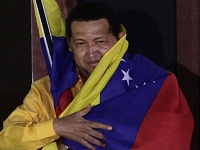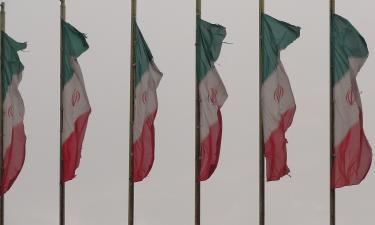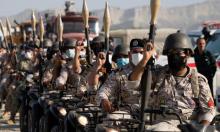CIA tries to get rid of Chavez at all costs
The United States has taken steps backstage to help the Venezuelan opposition to win parliamentary elections of 2010 and presidential elections of 2012. Wikileaks published correspondence between the American company Stratfor and Serbian Canavas that developed a plan to destabilize the country with "democratic" methods.

The correspondence involved Stratfor described by WikiLeaks as a "private version" of the CIA. Wikileaks also named among Stratfor's clients Department of Homeland Security, the U.S. Marine Corps, as well as well-known American corporations Lockheed Martin, Northrop Grumman and Raytheon. The "About Us" section of Stratfor site says that the company provides services in the area of "global intelligence" to solve business problems by using geopolitical situation analysis. The company was founded in 1996 by the author of the bestseller "America's Secret War", Dr. George Friedman and is headquartered in Austin, Texas. The company's staff speaks 29 languages and has access to intelligence information.
Advertising its services, Stratfor says that methodology analysis allows evaluating the influential "world leaders" and, thus, predicting their actions and behavior. This shows that its work is far from business.
The second party to the correspondence is Serbian Canavas (The Centre for Applied Non-Violent Action and Strategies). "What We Do" section of its website explains that the center specializes in the development of recommendations for "non-violent" overthrow of the government, based on the experience of the struggle of the student movement "Otpor" against the regime of Slobodan Milosevic in 2000. Venezuelan News Agency (AVN) writes that Canavas with the support of the CIA and non-profit organizations USAID and NED have developed plans for the opposition in Ukraine, Georgia, Belarus, Bolivia, Zimbabwe, Iran, Lebanon, Azerbaijan and other countries.
Canvas has about 200 activities on its "menu" including organization of social unrest, political and economic instability, including strikes, peaceful demonstrations with the use of Internet, social networks and Twitter, as well as traditional media. The center exports "students' revolts" and organizes seminars for activists in its headquarters in Belgrade.
Wikileaks published at least 73 documents and e-mail messages for the period from July 2004 to December 2011, which Stratfor employees sent from Caracas to Belgrade. The letters appear to be references to meetings or information from representatives of the Venezuelan opposition, such as the mayor of Caracas, Antonio Ledezma, the opposition candidate who lost to Chavez, Henrique Capriles, and the leader of the opposition party "People's Will" Leopoldo Lopez.
One of the telegrams is directly related to the presidential campaign of 2012. In this message, Stratfor is asking Canavas to help "the revolution in Venezuela." The strategy is explained as follows: to unite the opposition, help conduct the campaign and encourage people to vote for it. The tactics would include first to seek political opponents willing to cooperate, then analyze the situation and develop an action plan, called the "mission."
However, most e-mails are dated with the first quarter of 2010 and refer to the September parliamentary elections in Venezuela. The correspondence is headed by an "expert" of Stratfor on Latin America, Karen Hooper and describes the political situation in Venezuela. She writes about strengthening of cooperation with Russia in the energy sector and that the policy of the state of the oil industry is in the hands of the Minister Rafael Ramirez. She then lists the issues that could potentially be used in the campaign, including drought, introduction of rationed energy consumption, and suspending of the broadcasts of the opposition cable provider RCTV for non-compliance with the Basic Law on Mass Media.
In another message Hooper says what forces should be used, e.g., church and students who are currently more reliable and popular in Venezuela than the opposition parties (reminiscent of the main "revolutionary" forces in Serbia). It also offers campaign slogans: government accountability, decentralization of the police, and notes that all the necessary resources will be provided for the implementation of the plan.
Now let's see what events in Venezuela followed this correspondence. On January 28, 2010, students at several universities in the country were taken to the headquarters of the national electricity company Corpoelec with a petition demanding to end rationing of electricity and an increase of investment in the energy sector.
Different universities organized student strikes against the government's policy, including hunger strikes, and all mainly in the state of Merida, the mainstay of the opposition. Monsignor Osvaldo Azuahe, Assistant Bishop of Maracaibo, Venezuela at the conference of bishops (CEV) urged Catholic youth "to lead the movement, which will send us on a path to build a new civilization." The main opposition newspaper El Universal focused its criticism on the violation of freedom of speech in connection with the closure of six cable channels, including RCTV. Actions of police were criticized and called repressive, and secrecy and unaccountability of the Chavez government was discussed by everyone. On January 30, 2010, Amnesty International called on the Venezuelan government to guarantee the right to freedom of expression and assembly for all people.
Enrique Mendoza, a representative of the "Democratic Unity Roundtable" (MUD) boasted publicly in the press that his party had a plan that would lead to the victory in the election. However, the cheering stopped after the opposition lost. Stratfor said in its letter that "the plan to destabilize Venezuela" may not be fully implemented because of the lack of trust among different groups of the Venezuelan opposition. This is not true, because the opposition appeared consolidated and brought a single candidate to the presidential election. Stratfor experts were covering themselves in case of failure. The authority of Hugo Chavez among the people is so great that it cannot be trumped by any "democratic" means.
Lyuba Lulko
Pravda.Ru
Subscribe to Pravda.Ru Telegram channel, Facebook, RSS!



